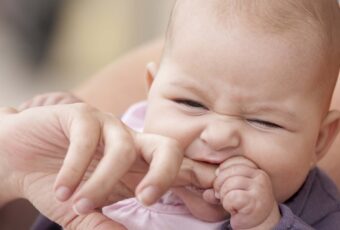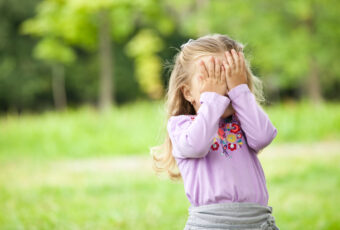When you have a baby, there are endless things you need to worry about: sleeping schedules, proper nutrition, appropriate stimulation, and of course, proper hygiene. Of course, this includes dental care, but so many new parents have no idea what that actually means.
What exactly needs to be done for your baby’s newly emerging teeth? Dr. Justin Chafin of Firefly Pediatric Dentistry in Franklin, Tennessee weighs in.
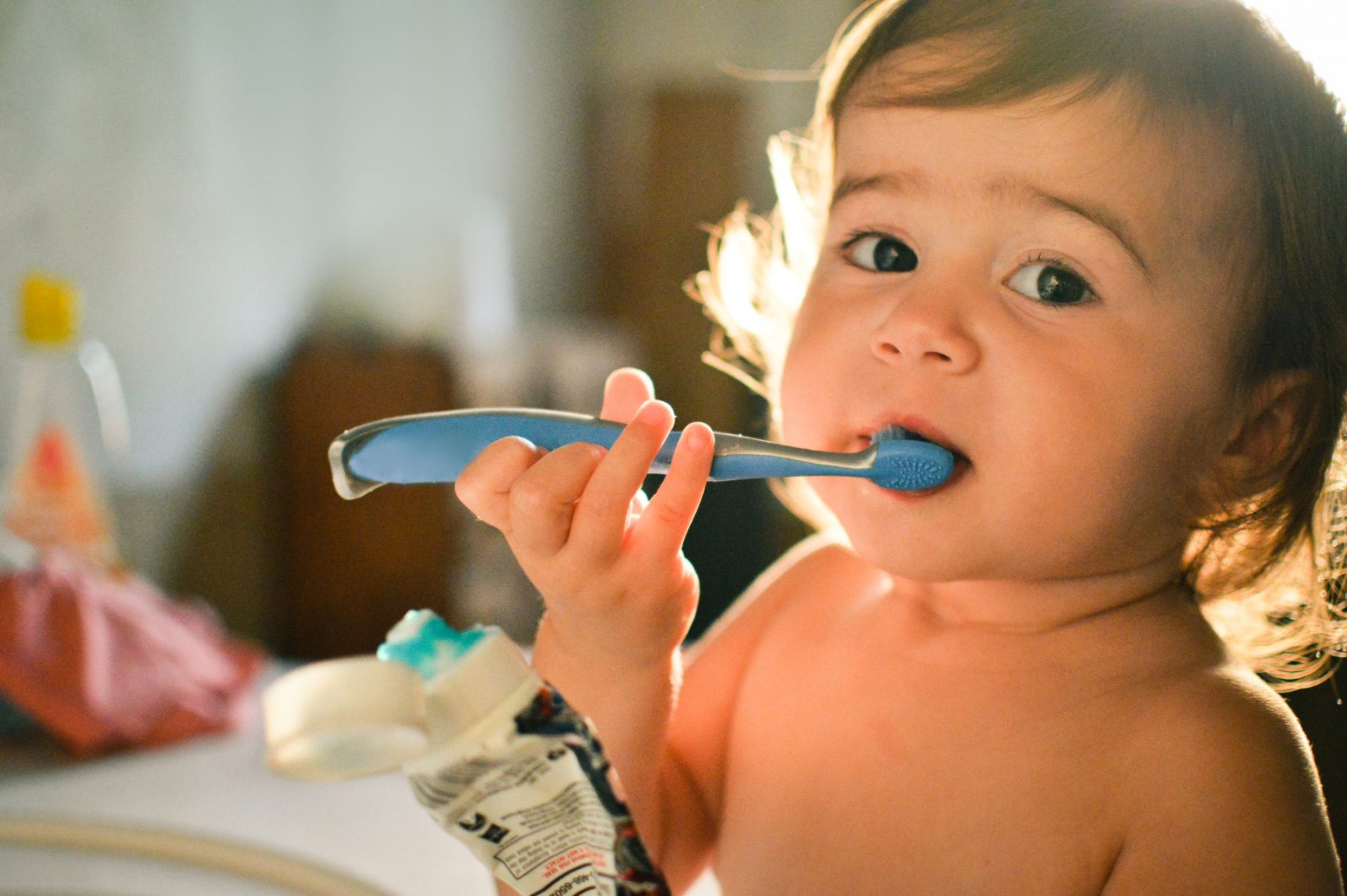
Tips For Baby’s Dental Health
Regarding when a baby needs to head to the dentist for the first time, Dr. Justin told ScaryMommy: “The recommendation (AAPD, ADA, AAP) is the first visit by the first birthday. Honestly, most of the time people don’t do that. But the earlier you can see patients, the quicker you can catch things. Cavities, dental caries, is technically an infectious disease.”
“It’s caused by bacteria. It’s the most common chronic disease of childhood. So, if we can catch that quicker, we can do stuff [like remineralization to avoid an extraction later.] The quicker we can catch things, the easier the treatment is, and along with that, the less costly.”
So what about products? Do you actually need to buy special products for your baby’s dental health? Dr. Justin says: “It doesn’t matter that much. Just get something they’ll tolerate. The best toothbrush to use is the one that they’re going to use!”
“If a fun banana-shaped toothbrush is what they’re going to use, then by all means, use that. Get them what they’re going to use. I will say that I like extra-soft toothbrushes because they get in the nooks and crannies a little bit better.” He also says that you don’t need to start flossing your baby’s teeth until age 2 or 3, when the back molars make contact.
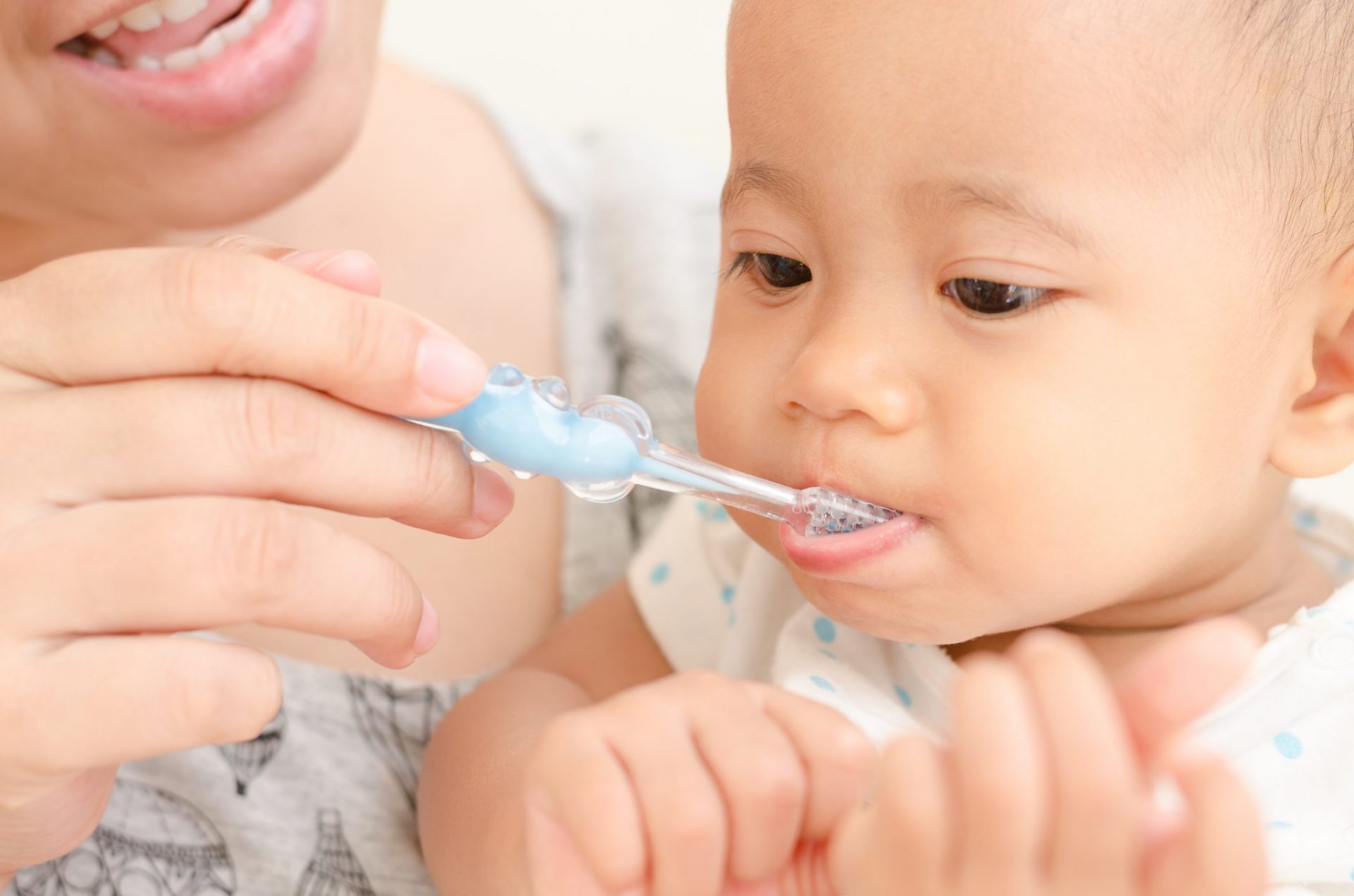
Having An Established Routine Is Critical
When it comes to fluoride, Dr. Justin says: “As far as fluoride, I know that’s kind of a hot topic. There is no scientific, evidence-based reason to avoid fluoride. It’s a very tried and true, long-tested, long-studied thing. It’s okay to use fluoride even on an infant that has their front two teeth barely poking through. The main issue is the amount. On babies that can’t adequately spit out, use an amount the size of a grain of rice.”
“At that amount, even if they swallow every single bit of it every time you put it in their mouth, it’s not going to be enough to cause fluorosis, upset stomach, anything in their body.” If you do want to avoid fluoride, try to use 6-8 grams of Xylitol per day in their mouths. It’s not as effective as fluoride, but it is still better than nothing.
What leads to poor dental health in babies? Dr. Justin says: “Dental health is a multi-factorial thing. There are four big ones: The tooth itself, the bacteria in the mouth, what you put in the mouth, and then the time that it stays in there. If any of those are compromised, the risk of getting a cavity goes up and up.
You can’t really do anything about the teeth you are born with or the strain of bacteria in the mouth. You usually get the strain of bacteria from your mother or your primary caregiver. That’s why we brush. To keep that at bay.”
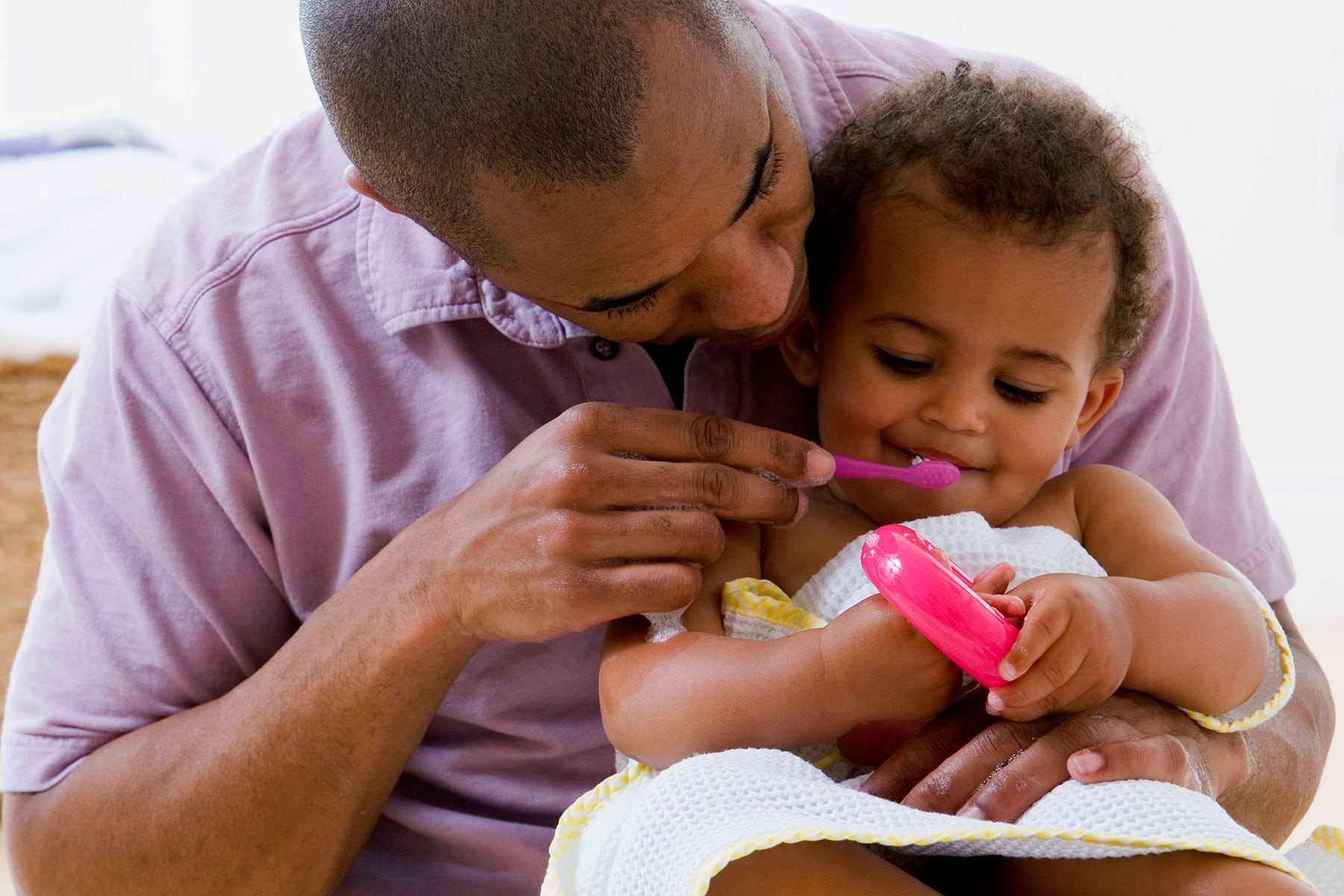
You’re In Control Of What Your Baby Consumes
While all of this can be overwhelming to parents, one thing that is comforting is that we can control what goes into our babies’ mouths and how long it stays in there.
Dr. Justin says: “Anything that is a sugar or a carbohydrate can cause a cavity. The bacteria doesn’t care if it’s organic, non-GMO coconut water or straight table sugar they’re eating with a spoon. It doesn’t matter to them. They can feed off of that. We see a lot of cavities, especially across the front teeth, if kids go to bed with a bottle of milk or if they feed on demand throughout the night for long periods of time.”
Yes, that does include breastmilk. Dr. Justin continues: “It’s less cariogenic than, like, Mountain Dew or something, but it does have levels of lactose in it. The vitamins, minerals, protein usually protect decently well, but that lactose in there, if it stays on the teeth long enough, then the bacteria can surely eat that lactose and produce the acid to make a cavity.”
Taking care of your baby’s teeth is similar to taking care of your own teeth. Having an established routine in order to keep them clean and going to the dentist are part of ensuring your baby’s teeth are healthy. Early habits help teach your kid that dental hygiene is of utmost importance.



